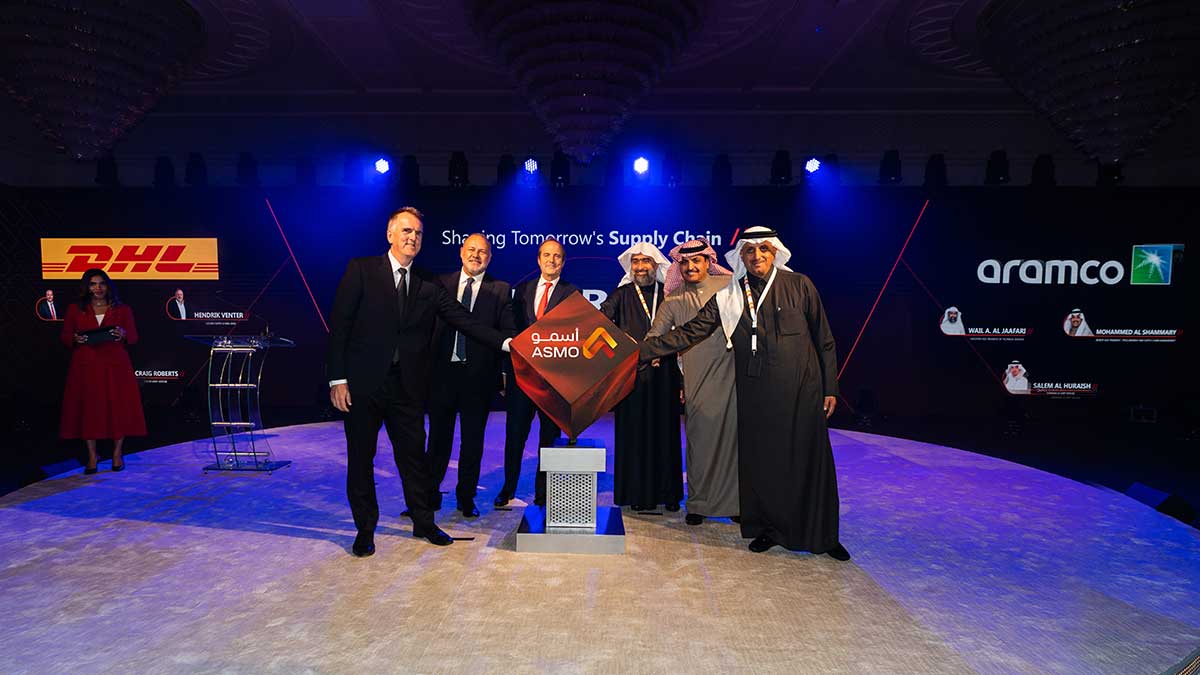The Indispensable Role Of Middle Managers In Modern Organizations

Table of Contents
Bridging the Gap: Communication and Information Flow
Effective communication is the bedrock of any successful organization, and middle managers play a pivotal role in ensuring this vital flow of information. They serve as a critical link, translating complex strategies devised by senior leadership into actionable plans for their teams. This involves breaking down complex directives into digestible steps, clarifying expectations, and ensuring everyone is on the same page.
- Translating complex strategies into actionable plans for teams: Middle managers interpret high-level strategic goals and translate them into concrete objectives and tasks for their teams. This ensures alignment between overall organizational goals and individual team efforts.
- Gathering feedback from employees and relaying it to senior leadership: They act as a vital feedback loop, gathering input from frontline employees and communicating their concerns, suggestions, and insights to upper management. This ensures that senior leadership has a realistic understanding of the challenges and opportunities faced by the workforce.
- Ensuring transparency and alignment across the organization: By proactively communicating updates, progress reports, and changes, middle managers ensure transparency and maintain alignment across the organization. This prevents misunderstandings and promotes a sense of shared purpose.
- Managing upward and downward communication effectively: They must master both upward and downward communication, skillfully conveying information to both senior management and their teams, fostering open communication channels and fostering a culture of mutual respect and trust. Effective utilization of various communication channels such as regular team meetings, email updates, and one-on-one conversations are key.
Driving Performance and Productivity: Team Leadership and Motivation
Beyond communication, middle managers are directly responsible for driving team performance and productivity. They are the frontline leaders who motivate their teams, set clear goals, and foster a positive work environment. Effective team management involves more than just assigning tasks; it requires strong leadership skills and a deep understanding of individual team members.
- Setting clear goals and expectations: They establish clear, measurable, achievable, relevant, and time-bound (SMART) goals, ensuring that every team member understands their individual contributions to the overall objectives.
- Providing coaching, mentoring, and performance feedback: They provide regular feedback, both positive and constructive, to help their team members grow professionally and improve their performance. This includes identifying areas for improvement and providing guidance and support.
- Fostering a positive and productive work environment: Creating a supportive and inclusive work environment is critical for driving engagement and productivity. Middle managers are responsible for building strong team dynamics and resolving conflicts effectively.
- Delegating tasks effectively and empowering team members: Effective delegation involves assigning tasks to the appropriate individuals, providing necessary resources, and trusting them to complete their work. Empowering team members fosters ownership and increases job satisfaction.
- Identifying and addressing performance issues: Proactive identification and addressing of performance issues prevents them from escalating and negatively impacting the team's overall productivity.
Adaptability and Change Management: Navigating Modern Organizational Challenges
Today's business environment is characterized by constant change. Middle managers play a critical role in navigating these organizational transformations and leading their teams through periods of uncertainty. Their ability to adapt and foster a culture of organizational agility is crucial for organizational success.
- Communicating changes effectively to their teams: They serve as the primary conduit for change communication, ensuring that their teams understand the rationale behind changes, the impact on their work, and the support available to them.
- Addressing employee concerns and anxieties: Change often brings uncertainty and anxiety. Middle managers are responsible for addressing these concerns, answering questions, and reassuring their teams.
- Implementing new strategies and processes: They are responsible for translating high-level strategic decisions into practical actions within their teams. This may involve training employees on new processes or implementing new technologies.
- Promoting a culture of adaptability and innovation: By fostering a culture of continuous learning and improvement, middle managers encourage their teams to embrace change and actively seek opportunities for innovation.
- Anticipating and mitigating potential challenges related to change: Proactive identification and mitigation of potential obstacles to change ensures a smoother transition and minimizes disruptions.
Developing Future Leaders: Talent Management and Succession Planning
Middle managers are not only responsible for managing their current teams but also for developing future leaders. They play a crucial role in identifying high-potential employees and providing them with opportunities for growth and development. This contributes directly to succession planning and organizational longevity.
- Identifying high-potential employees: They are uniquely positioned to identify individuals with leadership potential within their teams.
- Providing opportunities for growth and development: This may involve assigning challenging projects, providing mentorship, or sponsoring employees for training and development programs.
- Mentoring and coaching future leaders: They can provide valuable guidance and support to aspiring leaders, helping them develop the skills and experience necessary for advancement.
- Contributing to succession planning initiatives: By identifying and developing high-potential employees, middle managers contribute directly to the organization's ability to plan for future leadership needs.
Conclusion
In summary, middle managers are not simply supervisors; they are critical communicators, motivators, change agents, and talent developers. Their contribution is indispensable to the overall success of modern organizations. They bridge the gap between strategic vision and operational execution, ensuring that organizational goals are translated into tangible results. Investing in your middle managers is investing in the future success of your organization. Prioritize the development of strong middle management leadership for lasting organizational effectiveness and improved organizational performance.

Featured Posts
-
 Confirmation Of Pope Francis Death At 88 Years Old
Apr 22, 2025
Confirmation Of Pope Francis Death At 88 Years Old
Apr 22, 2025 -
 Aramco And Byds Joint Venture A New Era In Ev Technology
Apr 22, 2025
Aramco And Byds Joint Venture A New Era In Ev Technology
Apr 22, 2025 -
 Judge Rules Against Section 230 Protection For Banned Chemicals On E Bay
Apr 22, 2025
Judge Rules Against Section 230 Protection For Banned Chemicals On E Bay
Apr 22, 2025 -
 Turning Poop Into Prose An Ais Journey From Scatological Data To Podcast Gold
Apr 22, 2025
Turning Poop Into Prose An Ais Journey From Scatological Data To Podcast Gold
Apr 22, 2025 -
 Google Search Monopoly Doj And Google Resume Legal Battle
Apr 22, 2025
Google Search Monopoly Doj And Google Resume Legal Battle
Apr 22, 2025
Latest Posts
-
 Romantiki Komenti Materialists Premiera Me Ntakota Tzonson Pedro Paskal Kai Kris Evans
May 10, 2025
Romantiki Komenti Materialists Premiera Me Ntakota Tzonson Pedro Paskal Kai Kris Evans
May 10, 2025 -
 Nea Romantiki Komodia Deite To Treiler Ton Materialists Me Ntakota Tzonson
May 10, 2025
Nea Romantiki Komodia Deite To Treiler Ton Materialists Me Ntakota Tzonson
May 10, 2025 -
 El Bolso Preferido De Dakota Johnson Descubre El Exito De Hereu
May 10, 2025
El Bolso Preferido De Dakota Johnson Descubre El Exito De Hereu
May 10, 2025 -
 Prekvapujuca Podobnost Slovenska Herecka A Dakota Johnson
May 10, 2025
Prekvapujuca Podobnost Slovenska Herecka A Dakota Johnson
May 10, 2025 -
 Bolsos Hereu La Marca Catalana Que Conquista A Dakota Johnson Y A Las It Girls
May 10, 2025
Bolsos Hereu La Marca Catalana Que Conquista A Dakota Johnson Y A Las It Girls
May 10, 2025
